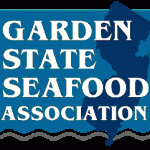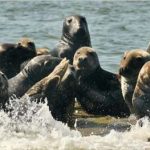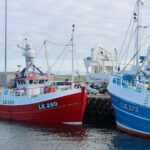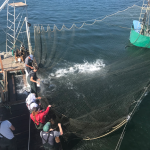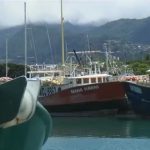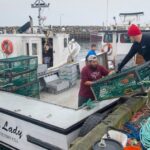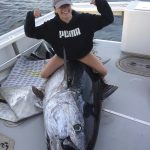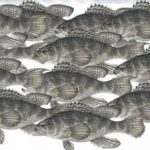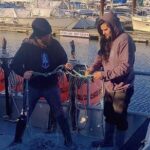Daily Archives: August 13, 2022
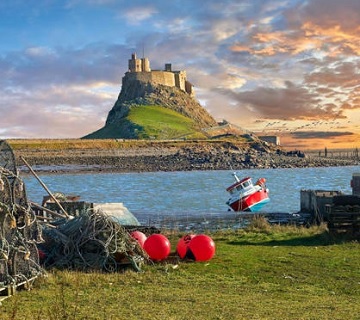
Whitehall fishing ban would ‘rip heart’ out of Holy Island, residents warn
For centuries, fishermen have been the lifeblood of the tiny Holy Island of Lindisfarne off the coast of Northumberland. But red tape from Westminster now threatens to kill off the profession and potentially the entire community, as officials propose banning fishing as part of a drive to rewild the sea. The Department of Food, Environment and Rural Affairs is consulting on designating the seas to the north of the island, a highly protected marine area, which would outlaw the crab and lobster potters who set sail from the island in the early hours. Fishing is the best-paid job on the island, and fishermen make up around 10 per cent of the population. If they were forced to move for work, they would take their families with them. At least three of these families include fully trained first responders who make up 50 per cent of the coastguard team, and it is said the 999 responses could not function without them. >click to read< 18:50
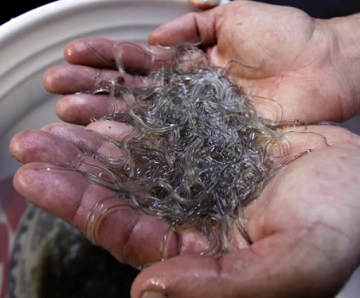
New Brunswick: Dispute over baby eels worth $4,900 a kilogram heads back court
Canada’s most valuable fishery per kilogram will be back before the courts in Saint John next week in a case that pits a longtime commercial licence holder against Indigenous fishers who want a piece of the elver action. On one side, the original plaintiff in the case accuses Indigenous groups of poaching the baby eels in waterways where she has exclusive rights to fish. On the other side, Indigenous groups want to exercise the right to engage in a moderate livelihood commercial fishery in their traditional territory. The court case began in April, when Holland applied for the injunction to stop Indigenous groups from fishing areas where she claims “exclusive” rights to fish, and from threatening and intimidating her workers. >click to read< 16:33

NOAA lays out plans for expanded testing of ropeless fishing technology
In an effort to address the two main causes of human-induced whale mortality, vessel strikes and entanglement in fishing gear, the National Oceanic and Atmospheric Administration recently released rules to reduce ship speeds and its “Ropeless Roadmap” to prepare for widespread adoption of ropeless fishing. The vertical lines that connect strings of traps on the ocean floor to buoys on the surface can get caught on a whale’s fins or in its mouth as it swims, leading to death in some cases. There are fewer than 350 North Atlantic right whales, according to NOAA. On-demand fishing gear would eliminate the need for the vertical lines in the water until the lobster trap, pot or gillnet is being hauled. >click to read< 15:50
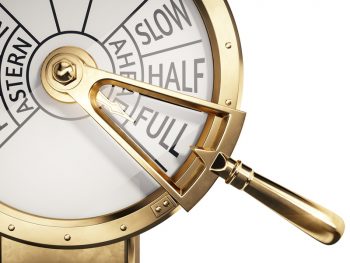
Some ship operators push back at rules requiring slowdown for whales
Federal regulators who want to enforce new vessel speed rules to help protect rare whales can expect some pushback from ship operators. The National Oceanic and Atmospheric Administration announced the new proposed rules, which are designed to protect the last remaining North Atlantic right whales, last month. The rules would expand seasonal slow zones off the East Coast and require more vessels to comply with the rules. The American Pilots’ Association is concerned the new rules would make operations more hazardous for pilot boats, said Clayton Diamond, executive director of the group. >click to read< 13:41
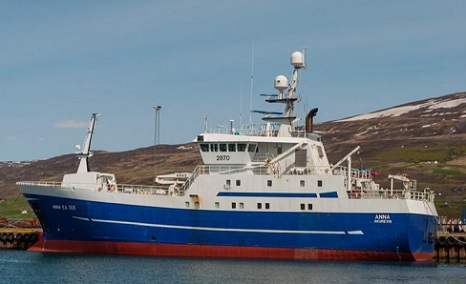
Atlantic fishing fleets ditch gill nets in favour of hook-and-line technology
The goal is higher-quality fish. That’s why one Canadian offshore fishing company is ditching gill nets in favour of hook-and-line fishing. The Arctic Fishery Alliance of Nunavut just bought a 52-metre longliner from Iceland to fish its quota of Greenland halibut (turbot) in the Davis Strait, near the Arctic Circle. In addition to adding modern processing equipment on board, the vessel will be fitted with a Mustad longline system, enabling the ship to deploy 40,000 fishing hooks daily. To fetch the best possible price in the market, a turbot fillet must be pure white. “And you don’t get that using gill nets,” said Earle. >click to read< 10:53

Portland Fish Exchange’s future murky as sales plummet
The future course of the Portland Fish Exchange is deeply uncertain but will likely be set this fall. The exchange, which was opened by the city in 1986, has provided nearly daily auctions of fish on the Portland Fish Pier. It was seen as a solid market-based alternative to the long-standing system that saw many fishermen turn their catch over to pier owners, who then trucked the fish out of state and tried to get a good price for them in markets elsewhere in New England or in New York. Last year, it hit rock bottom, with only 1.4 million pounds of fish auctioned. Some daily auctions were canceled because there simply wasn’t enough cod, haddock, flounder and halibut to attract commercial buyers. >click to read< 09:15
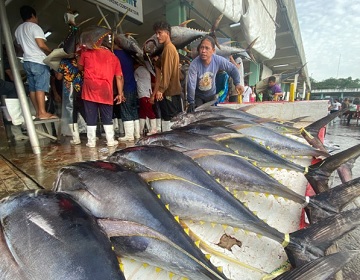
Philippines’ tuna industry reels from rising fuel prices
Veteran longline fisherman Miguel Mayola eased his boat gingerly into the port of General Santos City after a month at sea with his crew in deep waters off Bongao, a finger-shaped island at the southwestern tip of the Philippines. The 39-year-old captain, his leathery face weather-beaten by years of toiling in an industry that has made many buyers rich from the tuna he fishes, was now waiting to see whether his prized catch could net him enough money. He needed the cash for his family and 13-man crew, and to fund another fishing expedition. “It’s hard work but we can’t do anything. It’s really hard with prices of crude and gasoline rising, and our families have nobody to rely on but us fishermen,” Mayola said. >click to read< 07:55


































